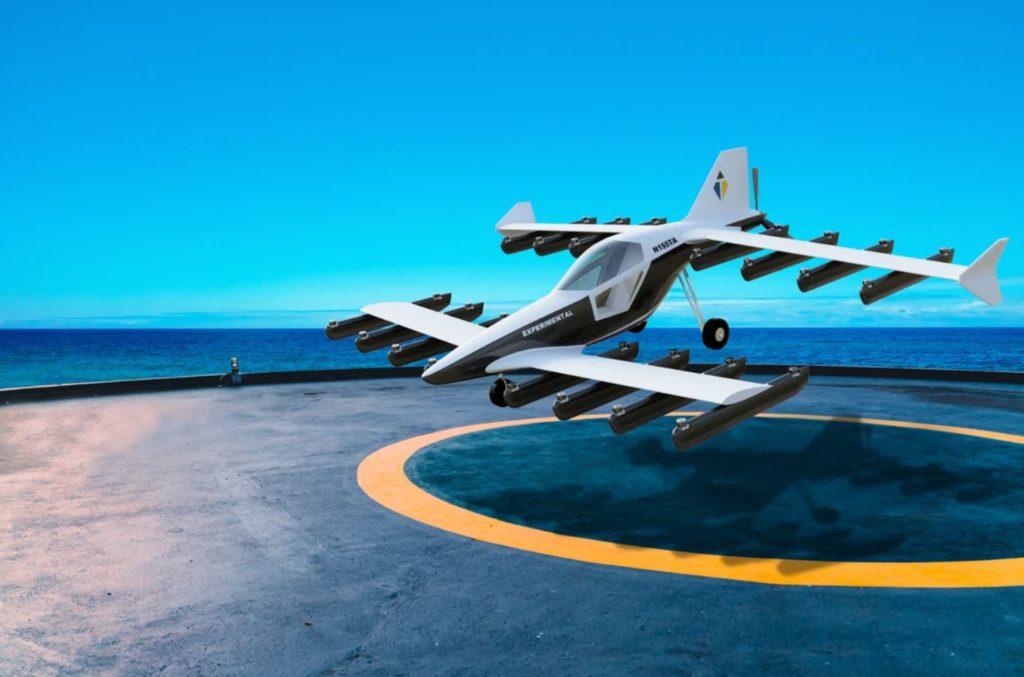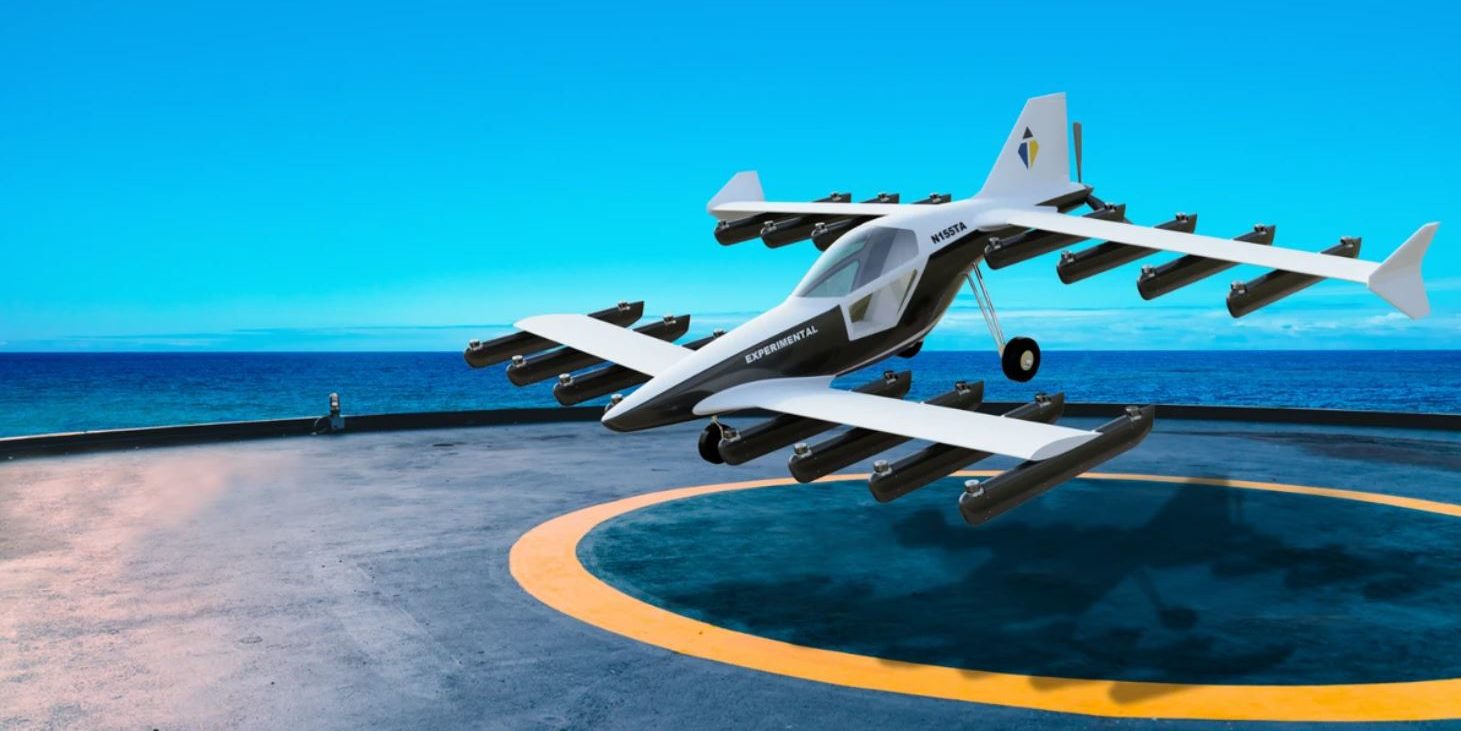Why a University-Derived eVTOL Venture Focused on MBSE
Today, people are increasingly looking to the prospect of flying cars as a means of solving social problems such as traffic congestion in urban areas and transporting people and goods to mountainous areas or remote islands.
While major automobile and aircraft manufacturers around the world are entering the market one after another, one university-derived start-up company is trying to challenge this increasingly competitive market. We are ready to provide the solutions to help young engineers shape future manufacturing in their challenge because we believe that is Zuken’s duty and mission.
The “Flying Car” Is an Increasingly Realistic Proposition
What springs to mind when you think about future mobility? The first thing that many people probably imagine is a flying car. The day when the world of science fiction movies becomes a reality is steadily approaching. Many companies around the world are looking to develop flying cars, from major automakers and aircraft manufacturers to start-up companies launched by former engineers from manufacturing companies and even some IT companies.
The flying car that is considered to offer the closest practical application is the electric vertical take-off and landing aircraft (eVTOL). The eVTOL doesn’t require a large-scale runway or large area for take-off or landing because it takes off and lands vertically and it can maneuver around urban areas as freely as a car. Japan is developing safety standards and license laws to facilitate the practical use of eVTOL in 2023.
University-Derived Start-Up Rises to the Challenge
One university-derived start-up company is challenging eVTOL development in the face of increasingly severe global competition. That company is teTra aviation, founded in 2018. Company president Mr. Tasuku Nakai started developing eVTOL when studying for his doctorate at the University of Tokyo. Within three short years, he took part in the GoFly international contest for developing personal-use aircraft sponsored by Boeing, and won an award from among over 800 participating teams.
Since becoming the first Japanese company to obtain an eVTOL test flight permit from the U.S. Federal Aviation Administration, teTra has been steadily building a flying track record in preparation for the practical application of eVTOL. Their approach to manufacturing is pure and passionate. As a child, Mr. Nakai was inspired by a desire to get quickly from A to B. Later, he channeled that inspiration into the development of a personal eVTOL for one or two passengers as a means of eradicating inconvenient barriers to the smooth transportation of people. Currently, teTra is working on developing a craft that seeks to “enable faster, safer, and freer movement in a sky without traffic jams” in order to solve problems related to traffic jams and train congestion in urban areas as well as passenger and goods transport links to rural areas.
“It will be easier to develop urban areas if our flying cars become popular. They have the power to change the world if we can encourage their broad use,” explains Mr. Nakai. The concept of teTra’s latest Mk-5 aircraft, a single-seater eVTOL that can fly 100 km in 30 minutes, is to realize the design of an aircraft with a high safety performance that even first-time users can pilot comfortably. The initial target for the craft will be the U.S. market’s 200,000 aircraft license holders. teTra will start accepting sales orders from the end of July 2021 for delivery in 2022 and aims to move to mass production in 2025.

MBSE to Help Make the Flying Car a Reality
teTra uses Zuken’ s GENESYS model-based systems engineering (MBSE) solution in its eVTOL development. The systems engineering approach that forms the basis of MBSE was first adopted by the aerospace industry. That is because a systems engineering approach can formulate a comprehensive view of all component elements that are vital to the development of complex systems which link multiple technological areas from machinery to electricity, software, and ergonomics, and especially to the development of products that must meet particularly high safety standards.
MBSE is attracting attention as a solution that utilizes models to achieve these requirements and enables consistent and efficient verification. teTra also quickly homed in on the effectiveness of MBSE and decided to introduce our GENESYS modeling tool to help master and operate MBSE, which the company considers will become an absolute necessity going forward.
Looking ahead, MBSE is expected to play an important role as a tool that will facilitate the development and mass production of manned eVTOL aircraft by verifying system safety and enhancing communication between engineers. Just as it is proving vital to the development of flying cars, the concept of systems engineering will become equally indispensable to next-generation manufacturing that seeks to work in harmony with the complex systems that form our social environment. Zuken is committed to using its GENESYS MBSE tool to help realize a sustainable society and support the challenges of young engineers such as teTra.
Learn more about MBSE and GENESYS

- Blog
Executives’ Perspectives on Digital Transformation #2

- Blog
Executives’ Perspectives on Digital Transformation #1

- Blog
What makes a winning Formula 1 car? Not brute force, but systems thinking. Find out how modern teams use MBSE to strike the right balance between aerodynamics, power, weight and heat, and transform complexity into faster lap times.

- Blog
Explore the shift to Model-Based Development in mechatronic systems, enhancing efficiency and collaboration beyond traditional documentation.

